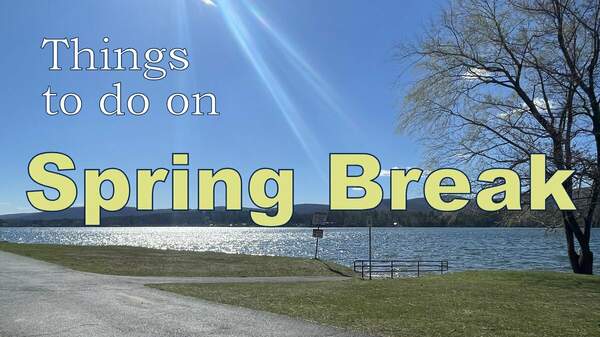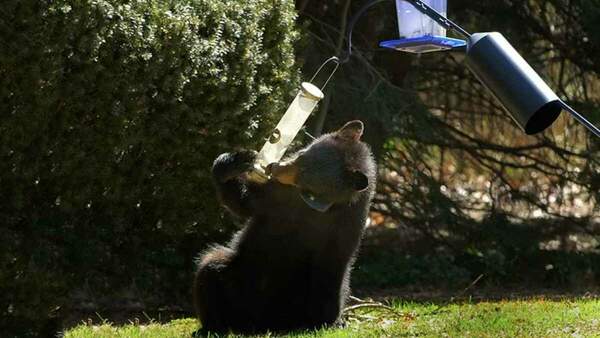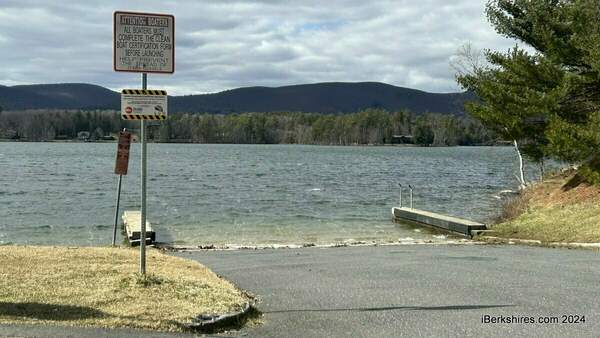
Is Renting Out Your Vacation Home Right For You?
The vacation rental market is lucrative. Are you a Berkshires homeowner who wants to take advantage?
Greylock Insurance, Berkshire's Neighborhood Insurance Agency, is here to tell you how.
A lot has changed in the vacation travel industry over the past five years, but arguably the biggest game-changer has been the growing desire of travelers to book vacation home rentals versus staying at traditional hotels or resorts.
In fact, according to a study of the American traveler by the Ypartnership/Harrison Group, nearly 50 percent of all travelers are now interested in renting properties for their vacation.
So for Berkshire homeowners considering renting out their second home, there's no time like the present to get listing on apps like Airbnb, HomeAway, VRBO and FlipKey. Whether your rental property will offer vacationers a romantic mountain retreat or provide a great hub for a family ski excursion, people are going to be looking for fall and winter short term rental homes like yours very soon.
Three Appealing Reasons To Rent Your Vacation Home
Homeowners are definitely responding to vacation travelers' desires. According to HomeAway, a leading online marketplace for the vacation rental industry, more than 3 million people worldwide are now choosing to rent their second home, and money is the foremost reason. In fact, the company's website states that the average vacation rental earns approximately $28,000 a year, but that the top 5 percent of HomeAway owners earn up to $73,000 per year.
Vacation homeowners, like Diane B. from Andover, Mass., find that renting their property can bring in a considerable amount of income.
"We may not completely break even on our investment, but we come very close to covering all taxes, mortgage and other expenses," she said. This is true despite the fact that Diane and her husband Mark only rent their New Seabury, Mass., home for approximately three months out of the entire year. Not too shabby of an income for just about 90 days of home sharing.
Another reason more and more people are turning a private home into a vacation rental is that they simply aren't using their second home as much as they thought they would. Rather than let it sit empty, people want to share their special vacation home with others.
"We didn't initially think of our vacation home as an investment," Diane said. "We bought it because we loved it. But between work, kids, and other commitments, we found we weren't using it nearly as much as we expected to. And it seemed like such a shame to just have it sit there."
Finally, while renting may require some time, effort and patience, leaving your home empty for an extended period of time could come with its own issues, like a higher risk for damages, theft and vandalism. Just think what could happen if the pipes burst in your vacation home and no one is there to turn off the water or call the plumber.
If you're now thinking that there are more great reasons to rent your second home than not, then the next step is for Greylock Insurance to help you determine the best way for you to do this. As your Berkshire neighborhood insurance agent, we always have your back, and we are here for you in this exciting new phase of homeownership.
To successfully transition your vacation home to a rental property, you will need to change your mindset more than anything else. It's time to start treating your second home like a business and our team has put together some pointers to help you make this transition far less challenging.
Five Tips To Help You Transition Your Vacation Home To A Rental Property
Tip #1 : Do not live in your vacation rental property (or make it feel lived in).
There are just some things you don't do at your place of business. It's generally unacceptable to sleep overnight, leave your personal items strewn all over the place, or heat up leftover fish in the office microwave. There are some lines that just should not be crossed, and the same goes for your home now that you are renting it out.
Foremost Insurance specializes in insuring seasonal and short-term rental properties and is one of Greylock's top national insurance partners. Their company offers this definition of a vacation rental home: "A dwelling which is rented for residential purposes and has a lease agreement for less than 12 months (daily, weekly or monthly). Dwelling may be used by the owner for their own vacation purposes."
If your intention or situation is other than this, then you no longer have a vacation rental property. For instance, if you're renting your primary home out for a week here and there during events like the Baystate Winter Games or the Fall Foliage Festival, your home does not meet the requirements of a rental property. Conversely, if you are letting a renter stay on for more than twelve months, you are more likely becoming a landlord, whether that was your intention or not. In either situation, you should contact your current homeowners insurance agent ASAP to ensure you are not putting yourself and your home at risk of being denied coverage in the event of a loss.
So, if you're still reading this, we'll assume your home is indeed going to be a rental property. Next step is to depersonalize your home by clearing out anything intimate. This may include photographs, high-end decorative pillows, personal towels and linens, and family heirlooms, like antiques. On the other hand, it is thoughtful (but not necessary) to stock the house with many of the things a guest could need including gas for the grill, beach chairs, paper products, cleaning supplies, and shampoo and body wash.
"I go through the house before rental season begins and remove anything unique to my family that I might have purchased or brought during our last stay," Diane said. "It's certainly not empty when guests arrive, but it's very simple. All decorative items are related to the ocean and beach rather than to me personally. I also make sure that items, like rugs and throw pillows, are nice, but durable, and can be used either indoors or outdoors. And I have a special set of new, clean towels and linens for guests who don't want to bring their own."
Also, contrary to what you might think would happen after years of renting her home, Diane says it's actually gotten tougher to remain emotionally detached from the property.
"The best advice another rental property owner gave me was to have as little physical contact with the guests as possible," she said. "I know that sounds cold, but we really don't need to know each other beyond contact information. If they call me, I am glad to answer questions. Otherwise, the whole rental process happens through emails and snail mail."
Tip #2 : Make sure to set clear financial goals and objectives so you know if your rental property is working for you.
Businesses, large and small, set up a tracking system so that they can regularly check results. This is how they stay on top of whether or not they are profitable, have effective marketing campaigns, or have satisfied customers. With the facts in hand, business owners can determine if they stay the course or change directions, and we recommend you think about your vacation home rental in a similar vein.
A good place to start is by setting goals such as: "We will rent this property for 12 weeks this year so our family can enjoy it other months" or "Our family doesn't really want to use this property so we want it to be rented out all year round."
Diane and her husband Mark, for instance, carve out a "rental season" for their vacation home that runs from mid-June through Labor Day. This leaves their vacation home available to their own family for long holiday weekends throughout the year.
"Also, we only allow rentals on a weekly basis, despite the fact that we get inquiries for just weekend stays quite a bit," Diane said. “But these short stays don't fit our financial or maintenance goals. For example, we don't want to have to do exorbitant housekeeping after a group of wedding guests comes in for the weekend. To us, that sounds like a lot of wear and tear on our place for not much return."
In addition, it's important to have clear objectives for your rental property like "We want to make enough income this year to cover our mortgage and taxes" or "We want to make enough money this year to take a special family vacation."
Once your goals and objectives are established, you'll need to do some good old-fashioned math to figure out how much you need to charge guests and how many weeks you need booked in order to achieve your financial objectives. If you're trying to cover expenses, don't forget to factor in any renovations or repairs that you have planned, and, just in case, have a cushion for the unexpected.
Tip #3 : Recruit a supportive team of people who can help with your home rental.
In business, a team can generally achieve more than any one individual can achieve on their own. Even sole proprietors have at least a handful of people that they can lean on for support when it comes to achieving their goals. Similarly, if you are choosing the home rental route, going this path solely on your own, with no supporting cast, is likely to end badly for you and your guests.
According to many of our rental property owners, a reliable cleaning person is a great first team member. But not just for the obvious reason that you need them to do a thorough scrubbing, dusting, vacuuming and restocking in between renters. This person, if willing, can also be your eyes, ears and nose to the ground. Enlist him/her to check things out when your instincts and experience are telling you there is something not quite right with a rental guest. You may not like what your cleaning person finds, whether it's very messy guests or broken furniture and appliances, but at least you will know well in advance of your next renters.
"When I have a long rental, say two weeks, I offer guests a free light cleaning at the end of the first week," Diane said. "This actually has less to do with maintenance and much more to do with my cleaner sleuthing out any trouble before it's too late."
It's also beneficial to make very nice with your neighbors so that you feel comfortable asking them to alert you to any nonsense going on at your rental property. What kinds of things would you ask them to look out for? Say you only allow six people and two cars per rental, but it's clear that the primary renters are piling in family or friends that exceed your home's occupancy. Or, you may have a strict pet policy that does not allow any furry friends, and yet your guests are seen letting their best pal out in the backyard. If you have a "team" of neighbors spying on your home for you, then you can be confident you will get a call when your renters are not playing by the rules.
Another important team member is a maintenance guy or gal. This person may not be able to fix all the issues that arise when guests are staying at your home, but it's key that they have enough experience to verify if and when there is a serious problem that needs your attention. They can also let you know if the issue may be a result of user error, like your renters leaving the freezer door open all night and complaining the fridge is not working.
A home sharing app can be a fantastic virtual team member as well. These services potentially expose your rental house, condo, townhome, cabin, cottage, or estate to millions of potential guests. Home sharing apps also tout services that help you succeed in getting more bookings and earning the most money you can, like a reservation calendar, secure online payment options, and a 24-hour customer service support team. Finally, you still have the ability to determine the rental policies, when you want to rent, and to whom.
Make sure that the app(s) you use offer vacationers an online payment system that is 100 percent secure. And ask them if they have a money-back guarantee if you do not get bookings for your rental.
Who you decide to have on your rental team will depend a lot on the characteristics of the property you are renting; you may require services like landscaping, snow removal, or even property management. However, Greylock strongly recommends including these two professionals in the rental process no matter what: Your attorney and your insurance agent. (We'll expand on their importance in Tips #4 and #5.)
Tip #4 : Have your attorney create professional rental documents for you, or at minimum review all your paperwork.
Yes, sorry folks, but as is the case for any business, there will be paperwork involved. And not just with the start-up phase, but also ongoing.
Some of the home sharing apps provide sample forms and contracts to help you manage your bookings and your property, including: rental agreement; invoice; template for responding to inquiries; directions and pre-arrival information for guests; welcome letter and checkout policy; security deposit refund/withholding letter; renter feedback survey; cleaning and maintenance list; and rental listing checklist
Note that any sample forms provided are meant only as a guide. HomeAway, for instance, is clear that you should revise these forms for the needs of your particular property. Plus, have your attorney review your rental rules agreement/contract to ensure that the terms and conditions of your contract comply with the state and local laws, as well as with the rules and covenants specific to your vacation rental property's location.
We also encourage you to leave detailed instructions for travelers telling them every little thing they need to know about the home, the appliances, the condo association rules, the beach, the parking, the area, and much more. This will save you the agony of guests calling you with questions like how to use the TV remote or make ice.
Tip #5 : Get comprehensive insurance specifically designed for your vacation rental.
No business owner in their right mind would ever considering opening their doors without being properly insured. And since each business has its own unique requirements, it's critical that owners speak with a qualified insurance agent about the right coverages to protect them from all the risks associated with running a company.
Likewise, now that you've decided to transition your private home into a vacation rental property, it's important to speak with your insurance agent about the proper insurance for this new status.
Be aware that your current carrier may not be able to accommodate your new situation as there are a limited number of national providers who offervacation or seasonal rental home coverage. However, Greylock is very pleased to offer our clients access to this unique type of insurance through our strong partnership with Foremost Insurance.
"While your standard homeowners coverage may be fine for your primary residence, most of these common carriers do not have options for investment properties like a seasonal or short-term rental," said Brad Schoenbach, East Zone manager of Foremost. "And while Foremost insures all types of homes, if you don't want to switch your other policies to us that's completely fine. We'll help you with the proper insurance protection for your vacation rental even if that's all you require from us."
Foremost also will assist you even if your rental property is outside of your primary state of residence.
"Say you live in Pittsfield, but have a cabin in New Hampshire or a home in upstate New York that you rent out. You can count on Foremost to cover this property, whereas most other carriers have more restrictions and may not cover this out-of-state rental property," Schoenbach said.
What exactly does vacation and seasonal rental home insurance cover? There are a variety of products and different levels of coverage, so it's important to work with your local independent insurance agent to determine what is best for the usage, value and condition of your rental property. But, in general, there are two types of policies: a basic policy (called a Dwelling Fire One) and a more comprehensive policy (called a Dwelling Fire Three).
At Greylock Insurance we strongly believe in educating homeowners on what they are buying, so here are some important details about each type of policy that will help you make an informed choice:
Dwelling Fire One Policy (basic): designed to insure primarily just the rental property, not the belongings inside; however, most insurers will offer a small amount of coverage for "contents" in the home as well. This type of policy may be suitable if you have minimal investment in appliances, furniture, linens and other things that you are supplying to your rental guests.
Dwelling Fire Three Policy (comprehensive): more commonly used in short term rental situations because it has an "Open Peril" clause that covers losses to the home's structure, loss of use or rental coverage, and usually personal liability. However, contents like furniture and appliances are not always automatically included.
Frank Bradley, Senior Territory manager of Foremost, said, "The key really is to contact an independent insurance agent, like Greylock Insurance, the moment you decide you are changing your ownership style. If you continue to insure the rental property under your existing homeowners policy, you absolutely put yourself at significant risk for not being covered for losses."
It's important to note that this insurance only covers the home you are renting; boats, golf carts, ATVs, or snowmobiles will require separate policies should you want to allow renters to use them.
Bradley clarified this crucial point even further: "Many homeowners have their fun toys that they view as going along with the rental, but these items require entirely different coverage. At Foremost, we will work with you on finding the right insurance product for your watercraft and other leisure items. Having multiple policies with us can also provide significant costs savings to homeowners."
Also, depending on the insurance carrier, rules and restrictions for renting your property may vary. Because terms differ widely among insurers, make sure you work with an agent who represents multiple insurance companies to ensure the best possible fit and, more importantly, so that any claims will be processed smoothly for you.
It's a big world out there, but it doesn't have to be scary. There's no doubt that travelers' changing desires and the rise of home sharing apps has created a whole new and larger world for vacation home renters.
If you're a newcomer to renting your vacation home rental, Greylock Insurance understands that it might be unsettling to put your information out there for millions of people to access and to receive inquiries from people all over the world.
From our perspective as well as other homeowners we've talked to, it's perfectly fine to tell a prospective guest that your home is booked if your gut is telling you something is not right. The most important thing is to protect yourself and your property.
The Greylock Insurance team is here to offer Berkshire homeowners peace of mind throughout the rental process by finding you the best insurance coverage for your property's specific needs. Please call 888-200-4445 for assistance.

Tags: homeowners insurance,















